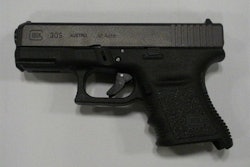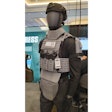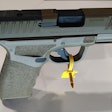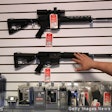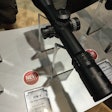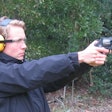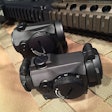 Photo by Kelly Bracken.
Photo by Kelly Bracken.
One provision of Connecticut's stringent gun-control legislation passed earlier this month was lost in the politically-correct shouts of support and Second Amendment denunciations.
The legislation signed by Gov. Dannel Malloy on April 4 includes a stricter assault weapons ban, limit on magazine size, and eligibility rules for buying ammunition. It also includes the nation's first dangerous weapon offender registry. Since Gov. Malloy's stated goal is to reduce gun violence, let's take a closer look.
Those people prohibited from possessing any sort of firearm after Oct. 1 will fall into four categories. The first pertains to misdemeanors and would ban anyone convicted of such crimes as possessing one-half ounce of marijuana, unlawful restraint, and stalking.
The second category would ban anyone discharged from custody within the preceding 20 years after having been found not guilty of a crime "by reason of mental disease or defect."
The third category bans those ordered by a probate court to be confined in a hospital for psychiatric disabilities for the preceding 60 months. The disqualifying period is the preceding 12 months if the person holds a valid firearm-related certificate or license that was issued before Oct. 1.
The fourth category bans people who were voluntarily admitted to a hospital with psychiatric disabilities within the preceding six months. Admission solely for alcohol or drug dependency won't trigger the ban.
Connecticut also has a separate statute that bans possession of handguns by certain categories of people. To the handgun statute, the new bill would add categories three and four from the above list and increase the penalties for a conviction. The bill doesn't contain any law enforcement exceptions in this "prohibited persons" provision.
It does make logical sense to keep firearms out of the hands of people who have just been treated for psychiatric issues or adjudicated mentally ill. This effort should be applauded. It will probably save the life of an officer knocking on a mobile-home door after responding to a domestic disturbance call.
However, taking weapons out of the hands of people with low-level misdemeanor convictions, on the other hand, is nothing short of excessive government overreach.
The law seems to both overreach and fall short at the same time. Arguably, it doesn't go far enough in dealing with domestic violence. Intimate partner homicides account for about 30 percent of the murders of women and 5 percent of the murders of men, according to the Bureau of Justice Statistics. Those people convicted of domestic violence felonies and misdemeanors or who are named in active protective orders should be temporarily denied gun-purchasing rights. Perhaps they could reapply after a prolonged waiting period or judicial review.
Will Connecticut's new law reduce gun violence or will it mostly serve the politicians who enacted it? Let me know your opinion by commenting below.









